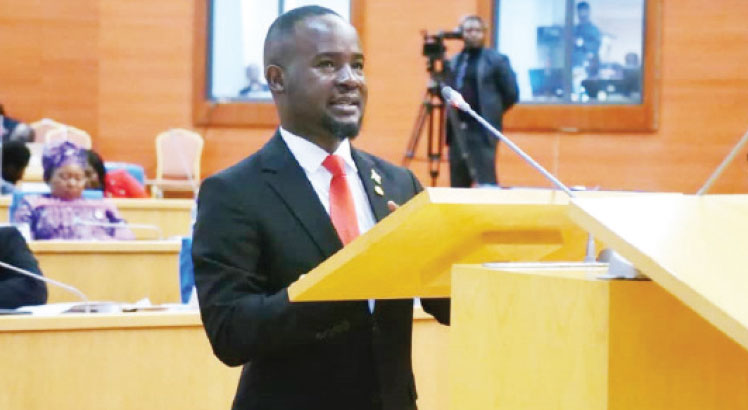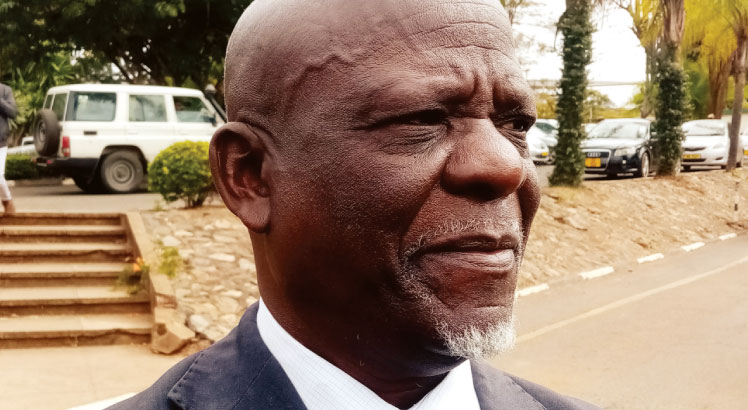Malawi Government is diverting money Parliament approved for development to bloating recurrent expenditures and the National Assembly itself is complicit, The Nation has established.
The result, based on our analysis that sampled seven of the last 14 national budgets, is under-funded capital projects that receive far less cash than what is approved in the budgets.
This trend, according to experts The Nation talked to, contributes to project delays, cost overruns, weak economic growth rates and threatens attainment of long-term development aspirations as captured in Malawi 2063, the country’s long-term development strategy.
The Tonse Alliance administration’s maiden National Budget is the poster child in recent memory of such funding treachery.
During that fiscal year, government released only 41 percent of what was approved for development spending, according to official budget documents we have reviewed.
The National Audit Office (NAO) report on the audit of Malawi Government accounts for the financial year ending June 30 2021 explains that out of the approved K511 billion development budget that was later revised to K637 billion, only K259 billion was disbursed, representing 59 percent of resources not funnelled to intended sectors for capital investments.
Gwengwe: We spend more than we collect
In the preceding 2019/20 fiscal year, six percent of approved resources were not spent while in 2018/19, the figure was 26 percent and stood at 43 percent in 2017/2018.
The audit report further observes that the unspent balances on development votes could be a reflection of projects which were not implemented in full due to delays, low disbursements and lack of expertise on implementation.
Out of 17 listed votes for the 2020/21 National Budget with unspent development budget, the Roads Fund Administration has the highest figure at K53 billion. The others are Forestry and Natural Resources at K52 billion, Agriculture at K41 billion, Energy at K35 billion and Health at K30 billion.
From the analysis, we found the 2012/13 financial year, a rare case in which Treasury released more funding to the development budget than actual allocations.
This was the case as donors poured in more resources for capital expenditure following the change of leadership from Bingu wa Mutharika who had died to his estranged Vice-President Joyce Banda.
During that year, the development budget was set at K97 billion, but expenditure was K104 billion. This, according to the budget statement, was “mainly on account of increased disbursements in donor-funded projects”.
However, this was short-lived as the following year, 2013/14, the under-funding stood at 43 percent.
Another common feature in all budgets we have reviewed is that during mid-year reviews, the development budget suffers cuts compared to recurrent expenditure.
For instance, between 2015 and 2017, the initial allocations to development were within the set threshold of 25 percent of total spending only to come down to 22 percent following some reductions at mid-term.
Reacting to the trend, Lilongwe University of Agriculture and Natural Resources associate professor of economics Kennedy Machila said the high levels of under-funded development allocations point to poor planning.
In an interview on Tuesday, he said it is worrisome that the roads sector is hit the hardest when it is a catalyst for economic growth.
“Prioritisation is a problem. We embark on too many projects against a lean resource base,” Machila said. “For every budget to be considered, it ought to have at least 25 percent of its total sum allocated to development, but even this policy direction is rarely observed.”
Our analysis shows the 25 percent allocation was upheld in seven out of the 14 budgets reviewed and former minister of Finance Goodall Gondwe said indiscipline meant that far less money was actually disbursed to capital projects despite meeting the allocation benchmark.
Speaking in an interview this week, he said he has observed with concern government’s appetite to spend more on consumption than development when the economy is facing a twin pandemic of huge budget deficit and debt, both of which require prudent spending.
Gondwe, an economist who has worked at top level in the International Monetary Fund, said: “Every budget will have a higher allocation towards the current account where there are statutory expenditures. No matter how small the envelope is, spare funds for economic growth.
“I am really surprised to see that government is caring more about judges’ housing allowance, chief’s honorarium, buying new cars… By all means, government needed serious austerity measures to cut down on unnecessary recurrent expenditure and support development.”
Machila, on the other hand, said there was need to think more of reliable means to finance development budget.
He said: “If we want to depend on donors then we must secure grants prior to developing the budget so that we can only have those projects for which we know funding is available.
“Secondly, we must cut down on consumption so that we reduce the deficit in the budget which is contributing to huge borrowing.”
Commenting on the issue in an interview on Wednesday, Minister of Finance and Economic Affairs Sosten Gwengwe said it was worth noting that the government continues having national budgets which spend more than what is collected in revenues.
He said: “Most of our spending is statutory. Wages pensions and compensations take up over 90 percent of our budget. Development is almost always on borrowed money.
“Under absorption of donor money remains a challenge. We are trying to rechannel resources from slow moving projects to other urgent projects that can move quickly.”
A 2021 budget analysis by the Centre for Research and Consultancy, an independent economic think tank, also established that between 2008 and 2020, government implemented a consumptive budget with low development expenditure which in most cases hovered below 40 percent.
The report called for efficiency in usage of public funds to benefit development financing.
In an interview yesterday, Catholic University-based economist Gilbert Kachamba said low funding towards development is one of the reasons Malawi is stagnating when neighbouring countries are registering significant economic growth.
The post It’s a raid! first appeared on The Nation Online.
 Moni Malawi
Moni Malawi 

